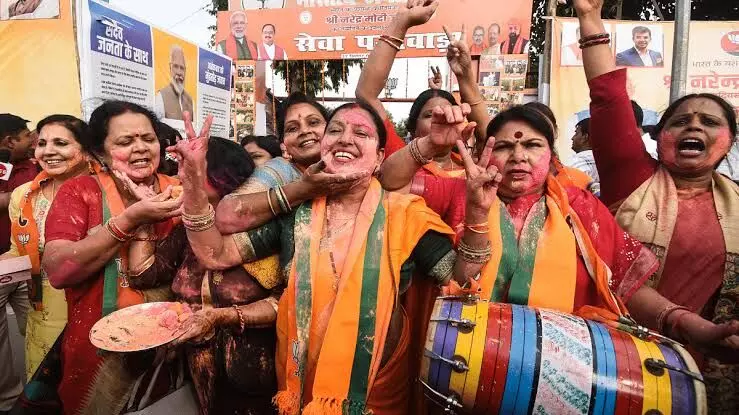Women's Reservation: Chhattisgarh tops the list in female representation; Andhra’s YSRCP has 18% women in LS
In Andhra Pradesh, 9% of MLAs are women, while in Telangana it is 5%. In Lok Sabha, YS Jagan Mohan Reddy-led YSRCP has 18% women representation
By Sri Lakshmi Muttevi
Representational Image.
New Delhi: Lok Sabha passed the Women's Reservation Bill on Wednesday.
`Nari Shakti Vandan Adhiniyam’ will boost women's empowerment and enable greater participation of women in the political process.
After a spirited eight-hour debate in which 60 members participated, the Lok Sabha passed the Constitution (128th Amendment) Bill, with 454 members voting in favor and two against it. PM Modi was present during the voting.
Status of Women in India
About 15% of the total members of the 17th Lok Sabha are women while in state legislative assemblies, women on average constitute 9% of the total members. In 2015, the Report on the Status of Women in India noted that the representation of women in state assemblies and Parliament continues to be dismal.
It noted that decision-making positions in political parties have negligible presence of women. It recommended reserving at least 50% of seats for women in local bodies, state legislative assemblies, Parliament, ministerial levels, and all decision-making bodies of the government.6 The National Policy for the Empowerment of Women (2001) stated that reservation will be considered in higher legislative bodies.
When was this bill amended?
Bills amending the Constitution to reserve seats for women in Parliament and state legislative assemblies have been introduced in 1996, 1998, 1999, and 2008. The first three Bills lapsed with the dissolution of their respective Lok Sabhas. The 2008 Bill was introduced and passed by Rajya Sabha but it also lapsed with the dissolution of the 15th Lok Sabha. The 1996 Bill was examined by a Joint Committee of Parliament, while the 2008 Bill was examined by the Standing Committee on Personnel, Public Grievances, Law and Justice.
Both Committees agreed with the proposal to reserve seats for women. Some of the recommendations given by the Committees include: (i) considering reservation for women belonging to other backward classes at an appropriate time, (ii) providing reservation for a period of 15 years and reviewing it thereafter, and (iii) working out the modalities to reserve seats for women in Rajya Sabha and state legislative councils.
Women's reservation in numbers
According to the data by PRS legislative, countries such as Sweden, Norway, & South Africa have more than 45% women representation. Japan at 10%, lags behind India. Under the Bill, 1/3rd seats in Parliament & Assemblies will be reserved for women.
With respect to state assemblies, no state has more than 20% women representation in its Assembly. Chhattisgarh has the highest representation with 18% women MLAs, while Himachal Pradesh has just one woman MLA and Mizoram has none.
In Andhra Pradesh, 9% of MLAs are women, while in Telangana it is 5%. In Lok Sabha, YS Jagan Mohan Reddy-led YSRCP has 18% women representation.
In certain countries, political parties have a quota for women candidates. In India, among parties with more than 10 seats in Lok Sabha, 42% of BJD MPs and 39% of TMC MPs are women. In Rajya Sabha, 17% of INC MPs are women.
TMC and BJD fielded the highest proportion of women candidates. Across parties with 10 or more MPs, women were as likely to win as men.
Both men and women have more than 75% attendance in Lok Sabha. Attendance and participation in Lok Sabha ensure that members are performing their legislative duties.
Features of women's representation:
Reservation for women: The Bill reserves one-third of all seats for women in Lok Sabha, state legislative assemblies, and the Legislative Assembly of the National Capital Territory of Delhi. This will also apply to the seats reserved for SCs and STs in Lok Sabha and state legislatures.
Commencement of reservation: The reservation will be effective after the census conducted after the commencement of this Bill has been published. Based on the census, delimitation will be undertaken to reserve seats for women. The reservation will be provided for a period of 15 years. However, it shall continue till such date as determined by a law made by Parliament.
Rotation of seats: Seats reserved for women will be rotated after each delimitation, as determined by a law made by Parliament.